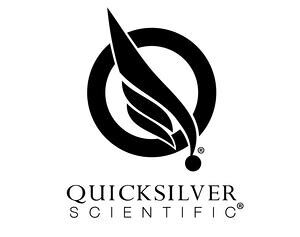Autism & the Gut: Are they linked and what is the link? Part 3: Autism Solutions

Autism Solutions: Three weeks ago, we wrote a blog on Autism & the Gut and covered some facts about ASD as well as some of the contributing factors as they relate to genes and the environment. Recently, in Autism & the Gut Part 2, we discussed all of the contributing factors including gut health and its important impact on ASD. This week, in Autism & the Gut Part 3, we will outline specific action steps that you can take with diet, supplements and lifestyle habits, to address ASD.
Autism Spectrum Disorder: What Can You Do?
Gut health
In the case of ASD, it is important to improve gut health. This can be done by addressing the issues discussed last week in Part 2. These are dysbiosis, leaky gut, food sensitivities, yeast overgrowth, imbalanced SCFA’s and NT balance. Also look for other GI issues that may exist (such as parasites, SIBO or other infections / overgrowths of the gut).
We strongly recommend working with a qualified functional medicine clinic to properly assess gut issues through lab testing. A good functional medicine practitioner can guide you through the process of finding the most significant gut issues and working on those, in addition to identifying toxins and other root causes we’ve discussed in this article. If you would like to book a free discovery call with our clinic, please click here. We work with people all over the world.
Tools that can be used to modify the gut microbiome are diet, supplements, probiotics, prebiotics, fecal microbiota transplant (FMT), microbiota transfer therapy (MTT) and antibiotics (Kang DW, 2019).
To Read About Blog Topic, Scroll Down
Want To Work With Our Clinic?
Do you have a chronic or mystery illness that no one has been able to help you with? Are you simply wanting to re-connect with a healthier version of yourself? It’s Time To Finally Feel Better!
Diet
- Diet influences the composition of the gut bacteria and overall health of one’s gut. We talked about a general gut healing diet and what to avoid for gut health in our recent article on anxiety. The approach discussed is always recommended for good gut health.
- A gluten-free and/or casein- or dairy-free (GF/CF) diet has been found to improve ASD behaviors, physiological symptoms, and social behaviors (Li Q, 2017). Gluten and casein increase zonulin, which is a protein that increases gut permeability. Removing gluten and casein from the diet will improve leaky gut. Two trials have demonstrated the benefits that excluding gluten and casein have for symptoms of ASD (Whiteley P, 2010).
- Avoid glyphosate. By only buying and eating organic food, glyphosate can be avoided. In addition to being used on the obvious GM crops, it is now also used as a desiccant to facilitate harvest in many other non-GM crops, like wheat, legumes and others. It is commonly found in alcohol, namely beer and wine, as it is sprayed on the crops used to make the alcohol. By going strictly organic-only, glyphosate exposure can be eliminated.
- The GAPS Diet (The Gut and Psychology Diet) may be helpful in some cases of ASD. It removes foods that are damaging to gut bacteria and are difficult to digest, replacing them with nutrient-dense foods that heal the gut lining thereby addressing leaky gut. It is a fairly strict elimination diet that requires removing grains, pasteurized dairy, starchy vegetables and refined carbs. It is particularly helpful for neurological issues such as autism (Campbell-McBride, 2019).
- There is some evidence that the ketogenic diet (a high-fat low-carbohydrate diet) leads to decreases in the total gut microbial counts, increased sociability, reduced repetitive behaviors, and improved social communication in an ASD animal model (Li Q, 2017). Animal research does fail in human trials about 92% of time, so it remains to be seen whether this will be effective for humans.
- Prebiotics encourage the growth of beneficial bacteria. We encourage adding them to the diet of someone with ASD.
- It is helpful to work with an experienced FM practitioner to see which dietary approach will work best as research shows this can be case-dependent. To book a complimentary 15-minute phone consultation to see whether functional medicine is a good fit for your child, please click here.
- It can be challenging to change the diet of children with ASD. Children with ASD typically tolerate only a narrow range of foods and have more feeding problems than children without ASD. They tend to refuse more foods and eat a limited food repertoire than typically developing children. Many parents complain that their children with ASD are very selective, ‘picky’ eaters. Children with ASD will reject foods for different reasons, including issues with the food presentation, texture, the use of certain utensils, and the mix of different types of food on the same plate. It can require patience to get a child with ASD to adapt their diet. Dr. Campbell-Mcbride explores this topic and recommends how to handle this situation in her book The GAPS Diet, Gut and Psychology Syndrome.
Supplements
- In the case of ASD, children typically eat fewer fruits, vegetables, and proteins than non-affected children (Li Q, 2017).
- They have a significantly lower daily intake of potassium, copper, folate, and calcium (Li Q, 2017). Research has looked at folate, vitamin D, omega 3, iron and zinc deficiencies with some links to ASD (Modabbernia A, 2017) and another study finds that zinc, copper, iron, and vitamin B9 are specific micronutrients related to ASD (Nuttall, 2017).
- Vitamin D deficiency seems to be quite common in children with ASD (Modabbernia A, 2017).
- We would recommend supplements in the case of ASD:
- A good multi-vitamin & mineral supplement can help cover the bases with vitamin and mineral deficiencies. Specific testing for micronutrients can help to target treatment much better so consider working with a FM practitioner for this type of testing. Unfortunately, most multi-vitamins contain some nutrients that are problematic so we recommend using professional brands. We recommend Mitocore by Ortho Molecular in our clinic and you can buy it from our online store here.
- Increased intake of omega 3 reduces hyperactivity, increases good bacteria in the gut and reduces risk of brain disorders (Amminger GP, 2007). You can use Olde World Icelandic Cod Liver Oil from our online store here.
- In addition, test for vitamin D and iron status and supplement these if necessary. Too much of either is a problem so we recommend working with a practitioner to find the right dosage.
- Lactobacillus probiotics help treat dysbiosis by controlling Clostridia overgrowth and aid the digestion of casein and gluten (Pelto L, 1998). Probiotics help to prevent intestinal inflammation, regulate intestinal tight junctions and barrier function, thereby improving leaky gut (Li Q, 2017). Probiotic treatments have a proven ability to normalize the microbiota and improve gut symptoms (Li Q, 2017). You can use Ortho Biotic probiotic from our online store here.
- L-glutamine has been shown to improve barrier function and reduce intestinal permeability (Foitzik T, 1997). Protocol for Life Balance is a good brand that you can get from our online store here.
- Digestive enzymes can aid the breakdown of food proteins and can improve digestive function. We often use Digestzymes by Designs for Health in our clinic, found here.
- Vitamin B6 and magnesium supplements improve social and language skills (Mousain-Bosc M, 2006). P-5-P is the active form of B6 and we like the product by the company Designs for Health. Magnesium Chelate contains the preferred glycinate form of magnesium and we like the product by Designs for Health. Both of these can be found in our online store here.
- Manganese (Mn) is an important nutrient, required for multiple functions in the body. A recent study revealed that glyphosate, the active ingredient in the herbicide Roundup, has been shown to severely deplete Mn levels (Samsel A, 2015). Low Mn affects the gut brain axis and is associated with gut dysbiosis as well as neuropathologies such as autism, Alzheimer’s disease, depression, anxiety syndrome and Parkinson’s disease (Samsel A, 2015).
Fecal Microbiota Transplantation (FMT)
FMT is the transplant of healthy human feces to a patient with severe gut dysbiosis, in order to regulate the intestinal microbiota of the patient. When the normal gut microbiota are destroyed, for example by excessive antibiotic treatment or other negative substances like GMO foods, it can be challenging to recover a normal healthy bacterial flora. FMT can be extremely helpful in these situations (Kim YK, 2018). Unfortunately this is not FDA approved for ASD in the US at this time.
Microbiota Transfer Therapy (MTT)
MTT is a modified FMT protocol. It involves 14 days of antibiotic treatment followed by bowel cleansing and a high initial dose of standardized human gut microbiota for 7–8 weeks. An open-label clinical trial showed that MTT improved both GI symptoms (i.e., constipation, diarrhea, indigestion and abdominal pain) and ASD-related symptoms and normalized the microbiota of ASD patients (Kang DW A. J., 2017)
Heavy metals
Heavy metals, combined with an inadequate nutritional status and an impaired detoxification function, can increase the severity of ASD symptoms (Blaurock-Busch E, 2012). Eliminating exposure to heavy metals will help prevent neurodevelopmental disorders in children. In children with ASD, it is best to test for heavy metals. If there is an issue with metals exposure, then seek treatment by supporting the detoxification process of the body and/ or chelating heavy metals from the body if necessary. Seek out a skilled functional medicine practitioner for both of these approaches.
Support detoxification
ASD children have a reduced ability to detoxify toxins from the body (Blaurock-Busch E, 2012). It is therefore advisable to find a skilled FM practitioner to help support the detoxification process. This will help the body to eliminate toxins, metals, and the other chemical types we have discussed, which contribute to the overall ASD picture.
Avoid toxins
In addition to enhancing the detox function, it is important to minimize toxin exposures wherever possible. Avoid pollution, endocrine disruptors, plastics, pesticides, GMO’s, glyphosate, mold or mycotoxins. You can do this by eating a clean, organic diet, and avoiding toxins or chemicals as much as possible. This would include cleaning up the family’s personal care and household cleaning products, avoiding pollution wherever possible, minimizing plastics use especially in food preparation and storage, not smoking cigarettes and keeping alcohol consumption to a minimum.
Avoid stress
Stress is not named as a cause of ASD but a stressful situation can trigger a person with ASD. For this reason, it is advisable to reduce stress where possible and manage stress. Stress can be managed with meditation and other mindfulness practices. Practice mediation, yoga or tai chi and spend time outdoors in nature.
If you or someone you know is suffering from ASD, get in touch with our clinic today. Book a free discovery call to see how we can help you with your symptoms. We can answer your questions and help you book an initial consult with one of the functional medicine doctors in our clinic.
Are You Suffering From A Chronic Illness?
Does your current health situation look like this…
- Do you feel that you have tried many things and either nothing works, or the treatment does not hold?
- Have you been told that there is nothing that can be done to reverse your illness and you just need to manage symptoms?
- Does your illness impact your work, your family, your happiness and your social life?
We specialize in finding answers and solutions for complicated chronic illness when people feel like they have tried everything. If this sounds like you, book a free call with us to see if we are the right fit for your health goals.
Dr. Miles has spoken for the following organizations:








Responses